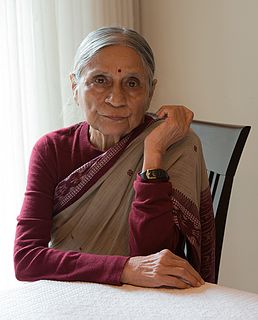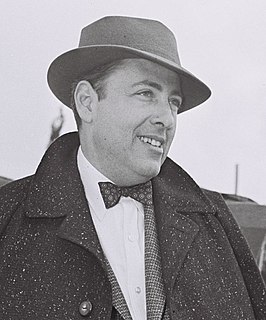A Quote by Maria Montessori
Childhood constitutes the most important element in an adult's life, for it is in his early years that a man is made.
Related Quotes
Studies have proven that early childhood education returns to society as much as $12 for every dollar invested. Our goal is to identify the most important development opportunities for children five years and younger, providing insight to transform early childhood education from a social policy issue into an economic imperative.
Each person decides in early childhood how he will live and how he will die... His trivial behavior may be decided by reason, but his important decisions have already been made: what kind of person he will marry, how many children he will have, what kind of bed he will die in... It is incredible to think, at first, that man's fate, all his nobility and all his degradation, is decided by a child no more than six years old, and usually three... (but) it is very easy to believe by looking at what is happening in the world today, and what happened yesterday, and seeing what will happen tomorrow.
There is no telling what a human character is. Until the test comes. To most of us the test comes early in life. A man is confronted quite soon with the necessity to stand on his own feet, to face dangers and difficulties and to take his own line of dealing with them. It may be the straight way, it may be the crooked way --- whichever it is, a man usually learns early just what he is made of.
What is the importance of human lives? Is it their continuing alive for so many years like animals in a menagerie? The value of a man cannot be judged by the number of diseases from which he escapes. The value of a man is in his human qualities: in his character, in his conscience, in the nobility and magnanimity, of his soul. Torturing animals to prolong human life has separated science from the most important thing that life has produced - the human conscience.
Even if man's hunger and thirst and his sexual strivings are completely satisfied, 'he' is not satisfied. In contrast to the animal his most compelling problems are not solved then, they only begin. He strives for power or for love, or for destruction, he risks his life for religious, for political, for humanistic ideals, and these strivings are what constitutes and characterizes the peculiarity of human life.
The most important thing is that man should be the measure of all structures, including economic structures, and not that man be made to measure for those structures. The most important thing is not to lose sight of personal relationships - i.e., the relationships between man and his co-workers, between subordinates and their superiors, between man and his work, between this work and its consequences.
If the black man is feeble and not important to the existing races, not on a parity with the best race, the black man must serve,and be exterminated. But if the black man carries in his bosom an indispensable element of a new and coming civilization; for the sake of that element, no wrong nor strength nor circumstance can hurt him: he will survive and play his part. So now, the arrival in the world of such men as Toussaint, and the Haytian heroes, or of the leaders of their race in Barbadoes and Jamaica, outweighs in good omen all the English and American humanity.
It requires twenty years for a man to rise from the vegetable state in which he is within his mother's womb, and from the pure animal state which is the lot of his early childhood, to the state when the maturity of reason begins to appear. It has required thirty centuries to learn a little about his structure. It would need eternity to learn something about his soul. It takes an instant to kill him.
It is, however, a most astonishing but incontestable fact, that the history of the evolution of man as yet constitutes no part of general education. Indeed, our so-called "educated classes" are to this day in total ignorance of the most important circumstances and the most remarkable phenomena which Anthropogeny has brought to light.




































